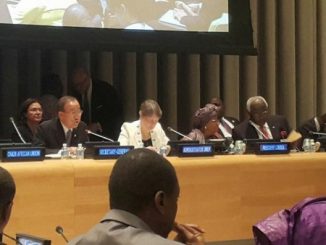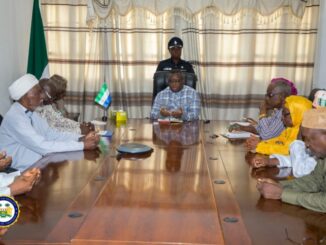By Joseph S. Sherman, Washington, DC
COCORIOKO Feature Editor
Monday March 20, 2006
Freedom of information is one of the most fundamental rights that individuals enjoy. It is fundamental to the existence of democracy and respect of human dignity. It is also one of the most dangerous rights; because freedom of information encompasses the right to express one’s discontent with the status quo and the desire to change it. As such, it is one of the most threatened rights with governments all over Africa.
Broadly speaking, freedom of information includes the right to free expression of opinion-the right to freedom of speech and freedom to publish. Article 19 of the United Nations International Covenant on Civil and Political Rights, The African Charter on Human and Peoples Rights and other similar conventions confirmed the rights to freedom of information.
Freedom of information is important in the developing democracies of Africa because it can render the processes of government more open and make those in power more accountable to their people, and it can also be a useful tool in improving societies. It is mandatory that African governments place value on freedom of expression in order for the people to be informed because information is a necessary tool in the generation of knowledge.
Lack of freedom of information affects not just the society but also governments in power. Since African governments don’t have polls as developed countries to indicate the regimes popularity, and that of their policies, political leaders could hardly know their approval and disapproval of themselves and their policies. In the absence of this, that is why most African leaders rely on self-deception of highly staged managed “national “parades” that are given to misinform rather than inform. Consequently, this action breeds deception, corruption and sycophancy in government circles.
Freedom of discussion in public affairs serves as an important function regardless of whether the political structure of a nation is democratic or not. Every African government must have some process for feeding back to it information concerning the attitudes, needs and wishes of its citizens, to make known their wants and desires. It is dismaying, however to observe that most African countries record of media freedom ranges between severe censorship to benign restrictions.
The people of Africa access to information is a matter of high importance. Openness or the lack of it affects people’s livelihood and lives. It is important for those who have specialist skills in the field to join forces and push for more openness in the continent. On the hand, progressive governments, civil organizations and the media should speak for those who are afraid or not able to speak for themselves, by doing that they can protect this right in the interests of those who can not do it for themselves.




Leave a Reply